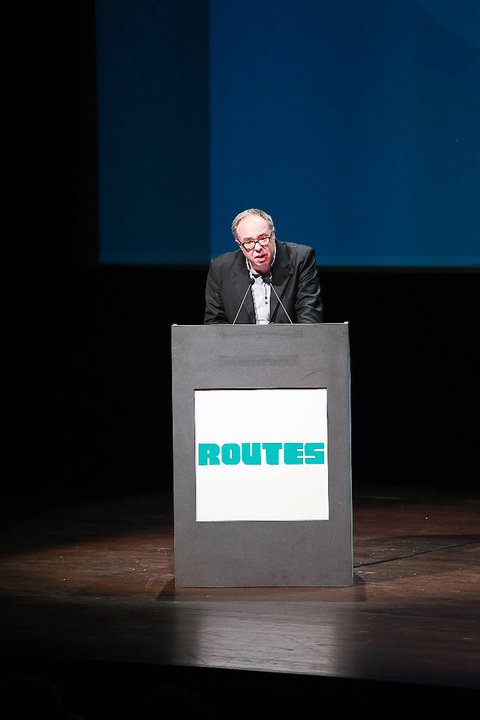Third ECF Princess Margriet Award speech by Charles Esche
8 Feb 2011

8 February 2011, Royal Flemish Theatre, Brussels European Cultural Foundation Princess Margriet Awards
Firstly, I would like to sincerely congratulate Selja and Kutlug on their well-deserved awards. It is great to see a jury having the courage to value two artists who are committed to giving us new understandings of the world today and standing up for their beliefs, rather than simply fulfilling the needs of the system as it exists ( something I am afraid too many artists do.)
Both of them are in a way experts without expertise, and I think it was clear from the short films we saw that their expertise lies in how they respond to what is around them in ways that make visible something we would otherwise ignore. They are above all interested in questions of how we can live together as human beings in intimacy, and how we can organise ourselves collectively, free from fear and hatred, and able to simply be ourselves. It seems not so much to ask if you say it, yet, as we all know, it is like asking for the world. As all the best artists are, these are people whose lifework is to think precisely this unthinkable demand and project that forward into an unclear future using a sensitivity to what is around today.
They also show us here in western Europe, in the, if I may say so – still complacent core of Europe that the future here will be at least as much determined outside its borders as inside, and we therefore have to learn from the rest of the world as least as much as we have to offer to it.
It is striking how, whenever this question of the future of society, of Europe, of the West comes up today, people trail off in thoughtful silence and then say, quite spontaneously, well, I think we need another vision.
The last time I read this was from Eric Hobsbawn, someone who lived through every 20th century attempt to imagine the world otherwise and now comes near to the end of his life asking what next?, How can we bring about a different balance between public and private life than we now have?.
Many people, mostly conservative, do give an answer. They say we dont need a future anymore, They repeat the post-1989 mantra that this is the end of history and all we need to do is refine the model of the world we have already created for ourselves. But lets be
honest, after 20 years of this propaganda from the rich do we really believe it any more? I dont have to tell all of you here today that the world has not moved closer to any kind of utopia in the last years, except maybe for that tiny group of oligarchs and superrich who take up more than half the worlds wealth between them.
The next question after what next? is then how could we imagine the future differently than today. How could we use our anger at the blatant injustice of the world and turn it to hope for a better way of living together?
I dont think current democratic politics has the capacity any more to address this task. Certainly not on its own. I dont think that philosophy or activism can either alone produce the changes we need. Instead, we need a space where these elements, and much else, can come together. A space where each expert can move beyond her expertise can contribute to something bigger.
I want to call this space, the space of art. It is of course an ideal. Most art never touches this level. But sometimes, in certain very specific and intimate ways, contemporary artists of all kinds can combine different knowledges to produce something new and transformative. I hope it is obvious that Kutlug and Sejla belong to this group, of course.) They are, along with their fellow travellers, agents of possible change in a society that has lost its sense of a future beyond technological invention.
You may ask if this has always been the role of art? Well, I am not so sure. Good artists are always sensitive to the times, almost like social seismographs and I think the most sensitive of them feel the lack of a future and want to provide us with the ideas and the tools to create on.
It is this capacity of art then that seems to me the most relevant today. It wants to help us as individuals imagine the world otherwise than it is and it is up to us to choose to listen.
So, let me ask you, next time you go to a museum or a kunsthalle, to let your thinking loose a little. Take what you see in as a sign of how the future may look and feel like. Whether it directly concerns living with immigration, poverty, riches or social indifference or whether it is the intimate depiction of a single person or a single action. As politicians or as civil servants, take what artists do seriously in making your choices and setting your priorities. Only then can art realise some of its potential and be capable to take us into a time when real politics and real social change are again possible.
